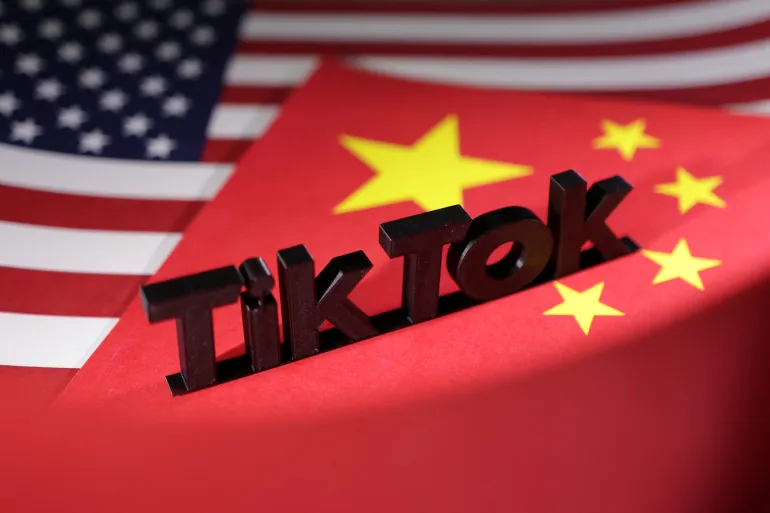
TikTok Faces Its Biggest Challenge Yet as US Ban Looms

First introduced as Douyin in China, TikTok became an overnight sensation when it entered the international market in 2017 and was launched by ByteDance. Its unique algorithm upended content consumption and launched it as one of the most influential platforms in the world. Nearly 170 million people use it in the United States alone, making it a cultural mainstay. But now, it faces an uncertain future, caught in the crossfire between the United States and China.
A law passed last year forces ByteDance to sell TikTok to an American company or face a nationwide ban. The US government cites national security concerns, saying the platform’s Chinese ownership could let the Chinese government access sensitive data on American users. The Supreme Court recently upheld the legislation mandating the divestiture of TikTok. The Biden administration defended the law, but the decision opened up a heated debate about free speech, data privacy, and what that means for creators and businesses alike who use the platform.
Government lawyers told the Supreme Court that TikTok presents a grave national security threat, as the Chinese government could use the app’s enormous data collection to spy on, blackmail or otherwise coerce people.
Congress has determined that divestiture is necessary to address its well-supported national security concerns regarding TikTok’s data collection practices and relationship with a foreign adversary, the justices wrote.
The ruling has received a mixed welcome. The administration of President Biden signalled it preferred TikTok to remain operational under American ownership. Still, it declined to intervene ahead of the law’s Sunday deadline, leaving the issue to the incoming administration of Donald Trump. Trump suggested he may seek a different path but gave few details. TikTok’s chief executive, Shou Zi Chew, thanked Trump for reconsidering a ban and allowing the company to fight for its users’ rights.
This is a strong stand for the First Amendment and against arbitrary censorship, Chew said.
A ban would reach deeper than ByteDance and hurt TikTok’s massive ecosystem of creators, advertisers, and business partners, including Google and Apple. The platform employs 7,000 people in the US and has been a cornerstone for small businesses, influences, and entrepreneurs, especially among underrepresented communities. Among others, African creators and influencers in the United States might be losing more. To many, TikTok had become a space where the world could see culture, music, and art in Africa. It also gave them more significant voices, new means of earning, and a place of cultural exchange. The ban would break up the communities, and artists would rush to look for alternatives that perhaps are not that powerful in reach or engagement.
Beyond the US, the ban on TikTok may have global spillovers: According to a report by African Business, the US decision may embolden African governments to take similar measures. Senegal and Somalia have already banned TikTok, and it continues to be up for debate in Kenya, Egypt, and Uganda. As with most decisions regarding censorship in Africa, leaders claim there are too many inappropriate videos that may threaten the need to keep cultural values intact. But critics say this can only give African governments a good excuse to crack down on free expression and dissent.
In the US, a possible shutdown of TikTok has bigger implications for the creative economy that this may affect. The platform has launched trends, music, and emerging talent, democratised content creation, and made it possible for any ordinary user to get viral. That would be a void across the entertainment and advertising industries, which have come to depend on TikTok’s unparalleled power in reaching younger audiences. Francisco called TikTok “one of America’s most popular speech platforms” and said the law against it would create a precedent that would let governments regulate digital platforms with abandon.
With the Sunday divestiture deadline looming, TikTok’s future remains in limbo. The Biden administration has decided not to extend the deadline, leaving the matter to Trump’s team. Some lawmakers, such as Senate Democratic leader Chuck Schumer, have called for more time to secure an American buyer, citing the need to balance national security with preserving the platform’s value. Meanwhile, Trump’s advisers have signalled that they may seek a solution to keep TikTok running while satisfying security concerns.
To the millions of users and creators across the world, TikTok is a cultural phenomenon, a medium of expression, and even a livelihood. The tenuous state in which its fate hangs raises important points about technology, politics, and free speech in the digitally developing world. Regardless of whether TikTok is able to emerge unscathed in the United States or its dramatic end unfolds, its story undoubtedly will go a long way toward setting global conversations around data privacy, censorship, and social media’s role in modern society discourse.
READ MORE:
- Movie Review: ‘Everybody Loves Jenifa’ Leaves Fans Laughing but Wanting More
- Dangote Refinery Increases Petrol Price to ₦955 Per Litre for Bulk Buyers Due to Rising Crude Costs
About The Author
Related Articles
Ghana Moves to Reclaim Kwame Nkrumah’s Former Residence in Guinea
Ghana has embarked on a diplomatic and cultural initiative to reclaim the...
ByWest Africa WeeklyJanuary 23, 2026Burkina Faso, Mali, and Niger Turn to Russia for Shared Telecom Network
Burkina Faso, Mali, and Niger have announced plans to develop the Sahel’s...
ByWest Africa WeeklyJanuary 23, 2026Ghana Shares Gold Mining Model With Tanzania
Ghana has taken a leading role in shaping Africa’s future approach to...
ByWest Africa WeeklyJanuary 23, 2026Ghana to Begin Construction of Nation’s Tallest Bridge With Japanese Support
Ghana is preparing to begin construction on what will become the country’s...
ByWest Africa WeeklyJanuary 23, 2026












Leave a comment